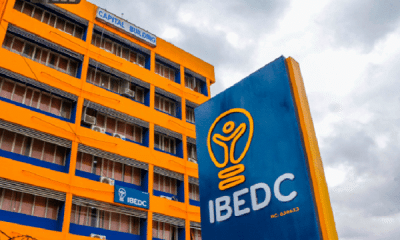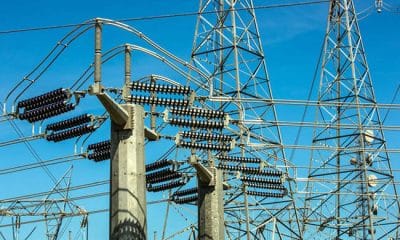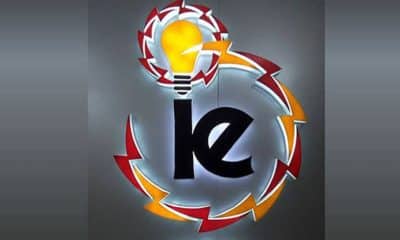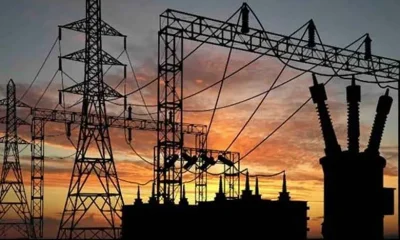Nigeria News
Nigerians Face Hefty Penalties For Meter Bypass, Illegal Connections As NERC Enforces New Regulations
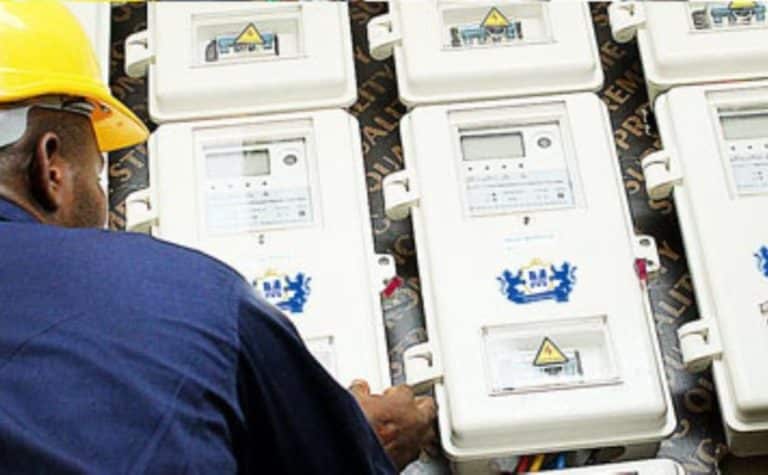
Electricity users in Nigeria will now face strict penalties for bypassing their prepaid meters or engaging in unauthorised connections, with fines starting from ₦100,000, the Nigerian Electricity Regulatory Commission (NERC) has announced.
Naija News reports that this was outlined in an updated directive on unauthorised access, meter tampering, and bypass, which was released on Tuesday.
According to NERC, penalties vary based on the customer category, ranging from ₦100,000 to ₦300,000 for non-maximum demand users.
Meanwhile, maximum demand customers caught stealing electricity will be fined between 450% and 600% of their last recorded energy consumption.
The regulatory body stated that the Amended Order on Unauthorised Access, Meter Tampering, and By-pass has officially replaced Order No: NERC/REG/41/2017 and took effect from January 22, 2025.
NERC explained that the amendments align with the Electricity Act 2023 and the Customer Protection Regulations 2023, which empower distribution companies to disconnect unauthorised connections without prior notice while outlining conditions for reconnection.
The primary goal of this order, according to the regulator, is to curb illegal access to electricity, prevent meter tampering, and establish clear reconnection procedures to ensure compliance.
“Customers who bypass meters or gain unauthorised access must pay administrative charges (including meter replacement costs) and reconnection,” the order stated.
The directive further clarifies that ‘customers found tampering with meters or bypassing connections will only be reconnected after paying the required penalties, including the cost of replacing the meter’.
For non-maximum demand single-phase residential customers, the fine for a first offence is ₦100,000, while repeat offenders will pay ₦150,000.
Similarly, non-maximum demand three-phase users will be charged ₦200,000 for a first offence and ₦300,000 for subsequent violations.
Maximum demand consumers, who are typically businesses and industrial users, will face a charge of 450% of their last recorded consumption for a first offence and 600% for any further infractions.
Power Companies Raise Alarm Over Energy Theft
Amidst these regulatory changes, power distribution companies have expressed growing concern over widespread energy theft, which they say is worsening despite the implementation of stricter penalties.
Ikeja Electricity Distribution Company (Ikeja Electric) recently lamented the rising incidence of electricity theft, warning that offenders will now face immediate prosecution instead of just paying financial penalties.
Ikeja Electric’s Head of Corporate Communication, Kingsley Okotie, described the situation as alarming, especially following the recent adjustment of tariffs for Band A feeders.
“The theft is massive, and the company cannot guarantee meeting customer expectations if this ugly trend continues. Ironically, some perpetrators believe that if they haven’t been caught, there are no consequences. This is false, and we must change the narrative,” he said.
Okotie further stressed that for the Nigerian power sector to remain viable, all stakeholders must collaborate to eliminate energy theft, as it undermines efforts to stabilise electricity supply.
Similarly, spokesperson for Eko Electricity Distribution Company (EKEDC), Babatunde Lasaki, identified meter bypass, illegal connections, and tampering with electrical infrastructure as major challenges facing the industry.
Lasaki noted that such illegal activities cost the power sector billions in revenue annually, ultimately affecting investment in network upgrades and service delivery to paying customers.
In response, EKEDC’s Acting Chief Executive Officer, Rekhiat Momoh, called on customers to support the company’s efforts to eliminate energy theft and illegal activities hindering its operations.
“Energy theft is a menace that we need to eliminate in our network and the power sector. We lose billions annually to it, and it affects our ability to invest in network expansion and infrastructure upgrades required to bring the desired stable power supply,” she said.

